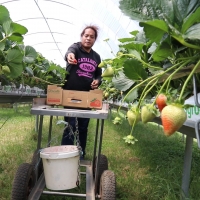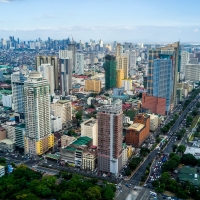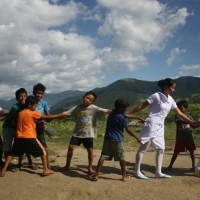- Home
- About
- People
- Publications
- Podcasts
- Asia & the Pacific Policy Studies
- Events
- Annual Australasian AID Conference
- The Mitchell Orations
- PNG Update
- Pacific Update
- Australian aid
- PNG Project
- Pacific Research Program
- Pacific migration
- PNG and Pacific scholars
- Global development policy
- Support us
- Contact us
- Drupal
Past events
Governance of the Seasonal Worker Programme in Australia and sending countries
12–1pm 9 December 2020
Professor Stephen Howes and Dr Richard Curtain
» watch the recording
» view presentation
» download PDF report
» download PDF executive summary
From a slow start in 2008, Australia’s Seasonal Worker Programme (SWP) has become a growing source of employment in the Pacific, and an important part of the seasonal workforce for Australian farmers. While research has demonstrated the benefits of the SWP for both workers and farmers, less is known about how the SWP is governed, especially in sending countries, and about the determinants of national participation, that is, why some countries have been more successful than others.
This new report analyses these issues, and recommends ways to improve SWP governance, both in Australia and in the sending countries, with the objective of promoting the sustainable growth of seasonal labour mobility from the Pacific and Timor-Leste into Australia. It is the culmination of years of research, including fieldwork undertaken over six years in 11 countries.
Speakers
Professor Stephen Howes is Director of the Development Policy Centre. He has a PhD in economics from the London School of Economics. He served in various positions for a decade at the World Bank before becoming AusAID’s first Chief Economist in 2005. He is now Professor of Economics at the Crawford School of Public Policy, ANU.
Dr Richard Curtain is a Research Fellow specialising in Pacific labour mobility. As a public policy consultant, he has worked on labour mobility on assignments related to the APTC, and in Fiji, Papua New Guinea, Samoa, Solomon Islands, Timor-Leste and Tonga. He is the co-author with colleagues at Devpolicy of a paper for the World Bank on Pacific Labour Mobility and organised a workshop at Devpolicy on this topic in June 2016.
» read more
Abundance from abroad: migrant income and long-run economic development
11am–12pm 11 November 2020
Professor Dean Yang
» watch the recording
» view presentation
When international migrant incomes improve, what are the consequences for global income (from international and domestic sources) in migrant-origin economies? In this webinar, Professor Dean Yang presented new research on the long-run equilibrium effects of migrant income shocks on global income in Philippine provinces.
Positive shocks to migrant income magnify over time as education levels rise, migration increases, and migrants enter higher-skilled, higher-wage jobs. Higher migrant income also causes higher domestic income, primarily from household entrepreneurship. Domestic income gains account for 75% of global income gains. Education investments explain, respectively, 42% and 18% of migrant and domestic income gains.
Read the full paper here.
Speaker
Dean Yang is a Professor in the Department of Economics and the Ford School of Public Policy at the University of Michigan. His research agenda spans a range of applied microeconomic topics, including international migration, microfinance, health, disasters, trade, religion, and political economy.
This webinar was free and open to the public. It was recorded, and the recording will be made available soon through the Development Policy Centre website.
» read more
Pacific labour mobility and remittances in times of COVID-19
12–1pm 21 October 2020
Dr Dung Doan, Dr Kenia Parsons, Dr Kirstie Petrou and Dr Matthew Dornan
» watch the recording
» view presentation
» read the interim report
International labour migration and the remittances it generates have long been an important source of employment and income for Pacific islanders, especially in times of adverse domestic shocks. Many low-skilled Pacific workers find seasonal employment in Australia and New Zealand, engaging primarily in agriculture sector jobs under the Seasonal Worker Programme and the Recognised Seasonal Employers scheme. The Pacific diaspora, concentrated in Australia, New Zealand and the United States, is also an important source of remittances to the region.
Migrant workers from both groups have been affected by the economic fallout of the COVID-19 pandemic. In this webinar, the impacts of the crisis on employment outcomes of Pacific migrant workers and remittances to Pacific island countries were explored. The speakers presented findings from a recent World Bank phone survey of Pacific seasonal workers and their employers, and from phone-based interviews of Pacific diaspora groups in Australia and New Zealand.
Speakers:
Dr Dung Doan is an Economist at the World Bank, focusing on jobs and labor market issues in the Pacific region.
Dr Kenia Parsons is a Social Protection and Jobs Specialist at the World Bank.
Dr Kirstie Petrou is a research associate with the Climate and Sustainability Research Group at Flinders University, and a consultant with the World Bank’s Social Protection and Jobs team.
Dr Matthew Dornan is a Senior Economist at the World Bank.
» read more
2020 aid budget breakfast
9–10am 7 October 2020
Professor Stephen Howes
» watch the recording
» view presentation
» read blog
Australia has entered recession for the first time in nearly 30 years. COVID-19 is not just hurting us, but developing countries and aid donors globally. In our neighbourhood, many Pacific economies are reeling from the drop in tourism and hit to jobs, while other countries are struggling to contain the pandemic itself. Some have faced a health and economic crisis on top of natural disasters and climate change impacts. Meanwhile, Australia’s aid budget has already sunk to historic lows as a percentage of Gross National Income after seven years of cuts.
The 2020 Aid Budget Breakfast was held on the morning of Wednesday 7 October where the Devpolicy team went through the numbers to find out what the future holds for Australia’s aid engagement.
» read more
Medical worker migration and origin-country human capital: evidence from U.S. visa policy
10–11am 23 September 2020
Dr Caroline Theoharides
» watch the recording
» view presentation
In this webinar, Dr Caroline Theoharides presents new research on the so-called brain drain for health workers using rich administrative data.
In this new paper joint with Dr Paolo Abarcar, she exploits changes in U.S. visa policies for nurses to measure brain drain versus gain. Combining data on all migrant departures and postsecondary institutions in the Philippines, they show that nursing enrollment and graduation increased substantially in response to greater U.S. demand for nurses. The supply of nursing programs expanded to accommodate this increase. Nurse quality, measured by licensure exam pass rates, declined. Despite this, for each nurse migrant, 10 additional nurses were licensed. New nurses switched from other degree types, but graduated at higher rates than they would have otherwise, thus increasing the human capital stock in the Philippines.
Speaker
Dr Caroline Theoharides is an Assistant Professor of Economics at Amherst College. Her work centres on labour migration from developing countries to richer countries and the role of human capital investment, specifically investment in education, on labour market outcomes. Dr Theoharides holds a PhD in Economics from the University of Michigan.
Read the full paper here.
» read morePages
Updated: 21 November 2024/Responsible Officer: Devpolicy Admin/Page Contact: CAP Web Team















